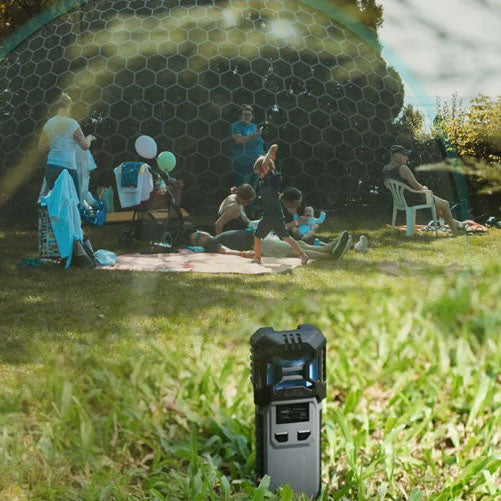Embrace the Great Outdoors Uninterrupted

Introduction
No outdoor experience immerses us closer to nature than camping—until the countless insects eager to tag along come into play. Mosquitoes, in particular, can dampen the joy of outdoor living and even pose health risks, as they may transmit diseases. To fully enjoy your next adventure without the annoyance of these pesky critters, a reliable mosquito repellent for camping is indispensable. This article delves into the diverse world of camping mosquito protection, offering insights into various types of repellents and tips for effective use, ensuring your next outdoor escapade remains uninterrupted by unwanted winged visitors.
a. Electronic Mosquito Repellents
b. Chemical Mosquito Repellents
c. Natural and Passive Methods
Effectiveness
Assess the efficacy of your chosen repellent based on customer reviews, manufacturer claims, and, if available, scientific studies. Note that effectiveness may vary depending on the severity and type of mosquito infestation.
Coverage Area and Duration
Consider whether you need protection for a small personal space (e.g., around the campfire) or a larger area (e.g., the entire campsite), as well as the duration of application (for brief activities or continuously throughout your stay).
Portability and Ease of Use
Ensure the device is easy to transport and operate, especially if you're frequently on the move or camping with children.
Safety and Environmental Impact
Check that the selected product is safe for humans, animals, and the environment. For chemical products, pay attention to ingredients and toxicity, while for electronic devices, consider potential electromagnetic emissions.
Combining Multiple Methods
Using a combination of different protection measures (e.g., spray, mosquito net, and insect-zapping light) enhances overall effectiveness.
Personal Care and Clothing
Wear long, tight-fitting fabrics, cover exposed skin as much as possible, and use repellent-infused personal care products. Avoid strong fragrances in personal care items that might attract mosquitoes.
Campsite Selection
Choose a breezy, sunny, and dry location, as mosquitoes tend to favor moist, dark areas. Setting up camp away from standing water and vegetation will reduce mosquito populations.
Timing Management
Avoid activities during evening and early morning hours, as these are peak flight times for mosquitoes.
Conclusion
With the right mosquito repellent and tailored strategies, you can safeguard your next camping trip against pesky mosquitoes and fully immerse yourself in the beauty and relaxation of nature. Thoroughly research, choose the appropriate repellent for your needs, and implement additional protective measures to ensure your camping adventures remain free from mosquito bites and buzz. Now, pack your bags and relish peaceful nights under the open sky, undisturbed by unwelcome winged companions.
No outdoor experience immerses us closer to nature than camping—until the countless insects eager to tag along come into play. Mosquitoes, in particular, can dampen the joy of outdoor living and even pose health risks, as they may transmit diseases. To fully enjoy your next adventure without the annoyance of these pesky critters, a reliable mosquito repellent for camping is indispensable. This article delves into the diverse world of camping mosquito protection, offering insights into various types of repellents and tips for effective use, ensuring your next outdoor escapade remains uninterrupted by unwanted winged visitors.
a. Electronic Mosquito Repellents
b. Chemical Mosquito Repellents
c. Natural and Passive Methods
Effectiveness
Assess the efficacy of your chosen repellent based on customer reviews, manufacturer claims, and, if available, scientific studies. Note that effectiveness may vary depending on the severity and type of mosquito infestation.
Coverage Area and Duration
Consider whether you need protection for a small personal space (e.g., around the campfire) or a larger area (e.g., the entire campsite), as well as the duration of application (for brief activities or continuously throughout your stay).
Portability and Ease of Use
Ensure the device is easy to transport and operate, especially if you're frequently on the move or camping with children.
Safety and Environmental Impact
Check that the selected product is safe for humans, animals, and the environment. For chemical products, pay attention to ingredients and toxicity, while for electronic devices, consider potential electromagnetic emissions.
Combining Multiple Methods
Using a combination of different protection measures (e.g., spray, mosquito net, and insect-zapping light) enhances overall effectiveness.
Personal Care and Clothing
Wear long, tight-fitting fabrics, cover exposed skin as much as possible, and use repellent-infused personal care products. Avoid strong fragrances in personal care items that might attract mosquitoes.
Campsite Selection
Choose a breezy, sunny, and dry location, as mosquitoes tend to favor moist, dark areas. Setting up camp away from standing water and vegetation will reduce mosquito populations.
Timing Management
Avoid activities during evening and early morning hours, as these are peak flight times for mosquitoes.
Conclusion
With the right mosquito repellent and tailored strategies, you can safeguard your next camping trip against pesky mosquitoes and fully immerse yourself in the beauty and relaxation of nature. Thoroughly research, choose the appropriate repellent for your needs, and implement additional protective measures to ensure your camping adventures remain free from mosquito bites and buzz. Now, pack your bags and relish peaceful nights under the open sky, undisturbed by unwelcome winged companions.
 Rechargeable LED Headlamp
Rechargeable LED Headlamp
 LED Flashlight
LED Flashlight
 1000 Lumen LED Flashlight
1000 Lumen LED Flashlight
 Multifunctional Flashlight
Multifunctional Flashlight
 Telescopic Camping Light
Telescopic Camping Light
 Camping String Light
Camping String Light
 Zoom Flashlight
Zoom Flashlight
 Tactical Flashlight
Tactical Flashlight
 Electric Mini Portable Bicycle Pump
Electric Mini Portable Bicycle Pump
 Electric Inflator Pump
Electric Inflator Pump
 Mini Air Pump
Mini Air Pump
 Carbon Monoxide Detector
Carbon Monoxide Detector
 Portable Bluetooth Speaker
Portable Bluetooth Speaker
 Electric Portable Water Filtering
Electric Portable Water Filtering
 Wireless Car Washer
Wireless Car Washer
 Wireless Vacuum Cleaner
Wireless Vacuum Cleaner
 Electric Cleaning Brush
Electric Cleaning Brush
 Shipping Policy
Shipping Policy
 Warranty
Warranty
 Return and Refund
Return and Refund




